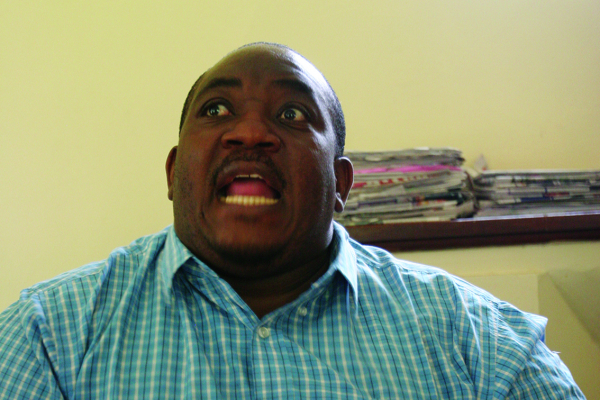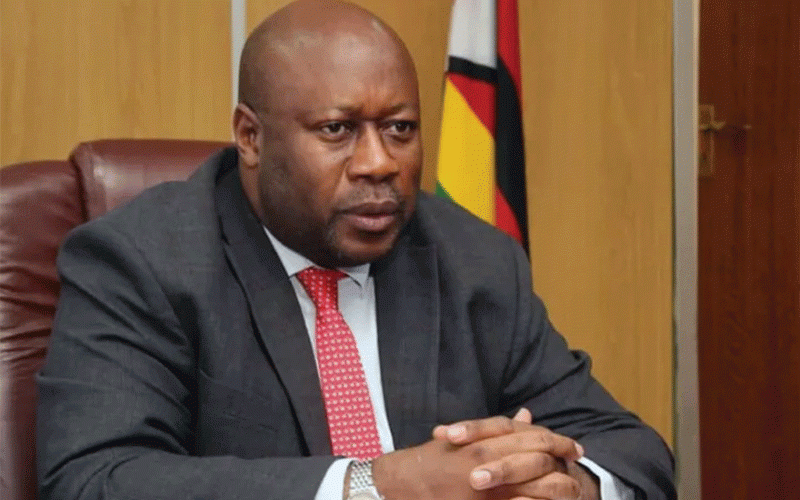
BY BLESSED MHLANGA/BRENNA MATENDERE
ZIMBABWE is on the verge of a complete shutdown as private and public sector workers as well as college students plan to take to the streets. Teachers, lecturers and students are planning to coalesce with the rest of the civil service for a strike that could cripple essential services and the start of the school calendar tomorrow.
Government workers last week rejected an offer by government to double their wages and the Zimbabwe Congress of Trade Unions (ZCTU) is planning “mother-of-all” demonstrations to press government to address key national issues and reverse “anti-poor people policies”.
The 97% salary hike would have seen the lowest paid government worker getting $2 033.
But the civil servants demanded that their salaries to be indexed to the United States dollar equivalent to those they earned during dollarisation period.
Alternatively, the Progressive Teachers Union of Zimbabwe (PTUZ), Zimbabwe Teachers Association and Zimbabwe National Students Union (Zinasu) as well as the rest of the civil servants are pressing government to raise wages to bring the lowest paid civil servant to a monthly salary of $5 000.
The confrontation is likely to start tomorrow when schools open, with PTUZ secretary-general Raymond Majongwe calling for a united front with pupils, parents and teachers to confront the government.
“Government must be taught … economic volatility in this country is increasing every day. Economic and political frustration is increasing every day. It’s better they engage people and they give us what we are worth because we are offering our labour to the country for the benefit of the nation and we need solidarity from everybody, the kids the parents and everybody out there,” he said.
- Chamisa under fire over US$120K donation
- Mavhunga puts DeMbare into Chibuku quarterfinals
- Pension funds bet on Cabora Bassa oilfields
- Councils defy govt fire tender directive
Keep Reading
“Why do people want to justify that they will seat and smile as government behaves like a bull in a china shop? You can’t tell me that somebody who is asking to be paid $6 000 for them to report for duty is asking for too much!”
Acting Primary and Secondary Education minister Amon Murwira said he was aware of the concerns by teachers, but said the matter was being handled by the Public Service Commission (PSC) and an announcement would be made soon.
“We have hope, I have hope, but at the moment, this is being dealt with the PSC and an announcement will be made regarding that,” he said.
Government has failed to effectively deal with the industrial action by junior doctors, which has continued for over four months, with hospitals partially closed.
Munyaradzi Gwisai, leader of the International Socialist Organisation in Zimbabwe, has called on all workers to have a joint demonstration and a shutdown of government business, saying workers have had enough and should not allow themselves to work for slave wages.
“We now need a united front of all victims of austerity to lead the resistance against austerity and the junta. Students, workers, youths, vendors and the villagers … we have to learn the lesson that the late Morgan Tsvangirai, as secretary-general of ZCTU, learnt then that sometimes negotiations yield nothing. You can’t keep talking to people who are not listening.
There is no bigger army that the power of the workers and villagers,” Gwisai said.
Irked by the increase in college fees against poor salaries, Zinasu has also warned it will be taking to the streets to protest what it called attempts to push them out of school.
“They pay student teachers $150 and not even constantly, they pay our mothers $100, then they proceed to us students and demand $5 000 per term, $15 000 per year exclusive of other necessities … They must be stopped, they must be resisted. They are evil,” Zinasu said in a statement in response to a statement from Seke Teachers College, which increased fees for resident teacher students from $2 416 to $5 016 effective January 10.
The ZCTU has already declared 2020 as a year for resisting slave wages and confronting government over poor policies and the poverty-inducing austerity measures.
“We have been mandated by the workers to ensure that we resist all these slave wages and engage in peaceful and constitutional action, which will end the suffering of workers, toiling every day yet they can’t pay just rentals or send their children to school. As we speak right now, many of our members are being evicted from their homes. Action has to be now,” ZCTU secretary-general Peter Mutasa said.
He added that it was important for all workers to join hands and fight from the same corner.
“Our message is that it is no longer effective for workers to fight from their different unions or groups. It is no longer tenable for the doctors to protest alone. It is also no longer effective for teachers to fight the government alone. The same goes for nurses, bank employees or those (who) do general cleaning. They can’t fight from their corners,” he said.
“It is also now impossible for workers who work for famous companies to fight without joining hands with those who are self-employed. So we are saying let us have unity of workers who work in formal and informal sectors. We now also want to see unity in the protests between the workers who work in cities and those who work in rural areas.”
Mutasa lashed out at President Emmerson Mnangagwa’s call for people to avoid meat and eat vegetables and potatoes.
“The issue that is bringing us all together as people is that of hunger. Every person who is working in this country must not be forced to eat vegetables and potatoes. A worker must get money enough to purchase foods that constitute a balanced diet,” he said.
Mutasa said workers no longer had any other way of dealing with the government to solve the multi-layered national crises than to take to the streets.
“Our message is that we do not have any other way to go because most avenues have been closed, but we now need to fight oppression and exploitation of workers. We do not have any other choice. So that is our first message (to workers) that we are going ahead with demonstrations and we are going to maintain our stance of fighting government policies which are oppressing the people,” he said.
The ZCTU has also said it was against government’s introduction of a mono currency and maintained workers must be paid either in US dollars or the equivalent of their salaries in the green back as at September 2017.
Through the Zimbabwe Hospitals Doctors Association (ZHDA), the doctors — who have been on strike for more than four months now — have vowed to press on until their demand for better wages is met.
“It has been four months since our members declared incapacitation, our employer has to date offered a net salary of $3 600 equivalent to less that US$170. A clear breach of our contractual agreement of net US$1 800. We remain steadfast in our call for a decent wage for our members,” ZHDA said.











